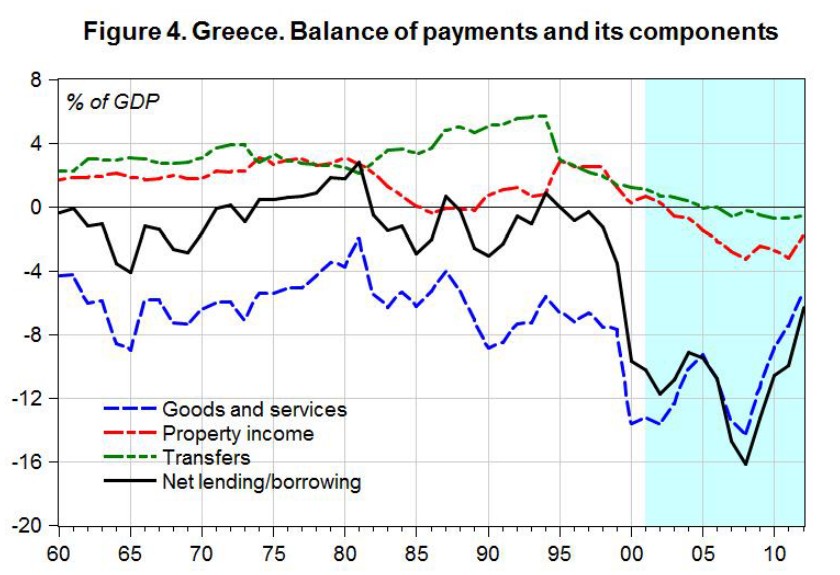Difference Between Shares and Debentures: Meaning, Differences, Types of Shares & Debentures 5paisa Market Guide
Contents
Provide direct finance to industry to bridge the gap between demand and supply of long-term and medium-term finance and industrial concerns in both public and private sectors. The offer is open only for a limited period at the sole discretion of the company and applicable only to new accounts opened up to Jan 31, 2023. The offer is only for waiver of account opening charges of Rs 354. All other charges as well as taxes and other statutory/Exchange charges continue to apply. The credibility of the debentures of a company is assessed on the basis of the credit rating of the company. Convertible Debentures can be converted into shares after a specific period of time.
However, the top dominants of the investment market are shares & debentures. People from all races & ages invest their precious money in these options for better returns. The point to underline here is, people are well acquainted with words shares & debentures, but unfortunately, they are unaware of the difference between shares and debentures.

One distinction between shares and debentures is that debentures become the company’s borrowed capital. It’s similar to a debt that a firm takes out from debenture holders and promises to repay with interest when the time comes. Shares are a popular means of investment issued by a company, through which some of its assets are sold to the general public and thereby funds are raised.
Secured debentures are the debentures that are backed by an asset of the company which can be liquidated to recover the interest and redemption value. Kindly update you email ID with us to receive contract notes / various contract notes electronically to avoid any further inconvenience. Any Grievances related the aforesaid brokerage scheme will not be entertained on exchange platform. It may worth mentioning that debentures and bonds are often confused, and both are used interchangeably, but they aren’t technically same. Let’s move to their differences to give you a clear idea. Public deposits are an uncertain and unreliable source of finance.
ICICIdirect.com is a part of ICICI Securities and offers retail trading and investment services. If you own shares in a company, you will be a partial owner. If you buy debentures, you will be creditor to a company. We collect, retain, and use your contact information for legitimate business purposes only, to contact you and to provide you information & latest updates regarding our products & services.
As a shareholder in a company, you get certain rights; voting rights, can receive dividends and you can sell whatever shares you have to someone else at any point of time and earn money. Shares and debentures, though are ways for a company to raise funds, are two very diverse financial instruments. Their inherent characteristics of equity and debt, respectively, make it easier for the investors to choose between them. Convertible debentures are debt instruments that can be converted into ordinary shares within pre-decided time by the company.
Risk and Returns
But in the case of equity shares, the payment of dividend depends upon the profit earned by the company, so the security of payment is not there. In the case of the company’s winding up, the debenture holders get their entire money back on the preference. However, in the case of shares, only the preference shareholders get a preference of over equity shareholders in terms of payment of the capital amount.

These shares are issued to the general public and are non-redeemable in nature. Investors in such shares hold the right to vote, share profits and claim assets of the company. The value in the case of equity shares can be expressed in various terms like par value, face value, book value etc. The holders of shares are known as shareholders who are the owners of the company in different proportions based on the shares they hold and enjoys various rights under the statute. While the holders of debentures are debenture holders, they are the creditors. As you know, the common business rule, with more risk, you get more profits.
While equity shares have a high potential for profits, they are considered a risky financial instrument. Thus, investors need to have an appropriate high-risk appetite to invest in stocks. Should investors be looking for fixed income, then debentures may be a better financial instrument that one may consider adding to the portfolio.
Distinguish between shares and debentures.
Note that both these instruments are traded in the primary and secondary markets. Stocks or shares are issued by the corporates as a mode of raising capital. Investors can invest in the shares of any company by buying the shares from the open market or by subscribing to the IPO. Investing in shares of a company provides the investor with ownership rights as well as voting rights. As a corporation shareholder, you are entitled to receive dividend payments on a regular basis. Dividend payments are only possible if the company is profitable.
- Is part of the IIFL Group, a leading financial services player and a diversified NBFC.
- You can decide to invest in either shares or debentures based on your short-term and long term financial goals.
- Debentures can not be issued at discount but a share can be issued at a discount, unless the company satisfies the conditions of section 79 of the Companies Act.
- As a corporation shareholder, you are entitled to receive dividend payments on a regular basis.
- Investors who have a low risk-taking capacity may also explore investing their capital in debentures issued by quality companies.
Selecting a reliable and trusted stockbroker can provide you access to the best trading account in India. Generally, debt instruments subdue the risk exposure from equity. Therefore, if investors have a heavy risk appetite, then they may consider equity shares, whereas, if they do not want to put their capital at risk, they could explore earning fixed interest from debentures.
To get access please email on from your registered email-id or contact you Relationship Manager. Shareholders actively participate in the decision making process of the company. Interest is a business expense and is therefore acceptable as a deduction from profit. Check your Securities /MF/ Bonds https://1investing.in/ in the consolidated account statement issued by NSDL/CDSL every month. Stock Brokers can accept securities as margin from clients only by way of pledge in the depository system w.e.f. September 1, 2020. Receive OTP directly from depository on your e-mail and/or mobile number to create pledge.
Whereas, non-redeemable debenture holders only earn interest on the capital for the rest of their life. Shares are the most common financing option to raise fresh funds. By purchasing shares, you become a part-owner in the company, equivalent to your shareholding.
Both shares and debentures can be issued at a discount or at a premium depending on the value of the company or its market capitalization. Please read the scheme information and other related documents distinguish between share and debentures. carefully before investing. The purchase of shares entitles shareholders to ownership of the company. In other words, the percentage of shares you possess determines how much of the company you own.
How can you buy preference shares?
As the name itself implies, anybody who owns the shares of a company is termed as a shareholder. In some cases, other companies and even partnership firms own the shares of a company. Since they own parts of the company, shareholders are widely referred to as owners of the company. No trust deed is executed in the case of shares while it is executed when debentures are issued to the public.

Also these instruments serve as an investment tool for investors and capital raising for companies. Share provides a portion of a company’s profit, while debentures provide priority and interest income. Thus, both shares and debentures are ways to invest in a company and are two fag ends of a curve.
However, preference shares do not provide voting rights. Also, preference shares get a priority in receiving dividends as well as the value of their investment at the time of liquidation. When we talk about options for investment, the most common options available to investors are equity and debt instruments. A good or healthy combination of the two makes a balanced portfolio where the investors can reduce the overall portfolio risk as well as gain good returns. Shares and debentures are both issued by companies as a way to raise funds.
A Comprehensive Comparison between Debentures and Shares
While Shares alludes to the capital of the organization. It portrays the privilege of the holder to the predetermined measure of the shares capital of the organization. Many investors buy company debentures because they have less market-related risk and regularly promise bonds in the form of interest payments.
Debenture Holder and Debenture Certificate
The depositors may not respond when conditions in the economy are uncertain. Also, deposits may be withdrawn whenever the depositors feel shaky about the financial health of the company. The company can not depend on them for long term financing requirements. Name any three special financial institutions and state their objectives. Discuss the sources from which a large industrial enterprise can raise capital for financing modernisation and expansion. Provided no consent may be required in case the same is being shared as per compliance guidelines or as required by regulators.
Also, it is a legal certificate that mentions how much the investor has invested, the interest amount the investor receives and the schedule of payments. Furthermore, it mentions the date of maturity when the principal and interest amount is to payable. There are different ways in which a company, business, legal entity or government can raise capital for different purposes for their operations. In other words, there are distinct forms of capital structure that can be formed by any business based on their suitability. However, the most common method for raising capital is by issuing shares or debentures.
Sharekhan Comtrade Private Limited operates the web site accessible from the URL (the “web site”’). For intraday square off order no brokerage on the second leg will be charged if such trade results in a loss, however brokerage on the first leg will be levied in all cases. Transaction charges, STT/CTT, stamp duty and any other regulatory/statutory charges will be levied in normal course for all trades, irrespective of profit or loss. For MIS+ product, while placing order user places first leg order along with compulsory Stop loss trigger order (i.e second leg) & optional book profit trigger order .
